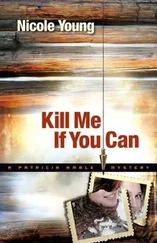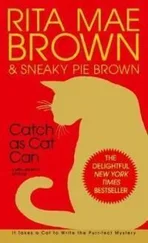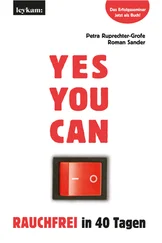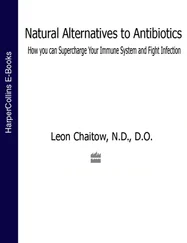When the last shop had closed, I secured the top of the canvas bag and began hauling the loot to the station wagon. I became stuck trying to get the dolly over the weather strip of the exit door. Try as I might, I couldn’t get the damned thing across the little ridge. It was just too heavy.
“What’s going on, buddy?”
I twisted my head and nearly soiled my drawers. They weren’t the same ones, but a pair of state troopers was standing less than five feet away.
“Well, the box is out of order, and the truck broke down, and I’ve got the bank’s station wagon out here and no goddamned hydraulic pulley, and I ain’t exactly Samson,” I said, grinning sheepishly.
The older one, a ruddy-faced redhead, laughed. “Well, hell, let us help you with it,” he said, and stepped forward and grabbed the handle of the dolly. With three of us tugging, it came over the ridge easily. They helped me drag the dolly to the station wagon and assisted me in lifting the bulky, cumbersome cargo into the back of the vehicle. I slammed shut the tailgate and turned to the officers.
“I appreciate it, boys,” I said, smiling. “I’d spring for the coffee, but I’ve got to get this little fortune to the bank.”
They laughed and one lifted a hand. “Hey, no sweat. Next time, okay?”
Less than an hour later, I had the booty in my motel room and was sorting out the cash. Bills only. I tossed the change, credit-card receipts and checks into the bathtub.
I netted $62,800 in currency. I changed into a casual suit, wrapped the haul in a spare shirt and drove to the airport, where I retrieved my bags. An hour later I was on a flight to Miami. I had a thirty-minute layover in New York. I used the time to call the manager of the airport in Boston. I didn’t get him but I got his secretary.
“Listen, tell the Bean State Bank people they can get the majority of the loot from last night’s depository caper in the bathtub of Room 208, Rest Haven Motel,” I said and hung up.
The next day I winged out of Miami, bound for Istanbul.
I had an hour’s layover in Tel Aviv.
I used it upholding my code of honor. In my entire career, I never yenched a square John as an individual.
I sought out a branch of an American bank. And laid a sheaf of bills on the counter before a teller.
“I want a $5,000 cashier’s check,” I said.
“Yes, sir. And your name?”
“Frank Abagnale, Jr.,” I said.
“All right, Mr. Abagnale. Do you want this check made out to you?”
I shook my head. “No,” I said. “Make it payable to Aloyius James ‘Bailout’ Bailey, in Boston, Massachusetts.”
CHAPTER EIGHT. A Small Crew Will Do - It’s Just a Paper Airplane
An entourage is expected of some people. The President. Queen Elizabeth. Frank Sinatra. Muhammad Ali. Arnold Palmer. Most celebrities, in fact.
And airline pilots.
“Where’s your crew, sir?” asked the desk clerk in the Istanbul hotel. It was a question I’d encountered before.
“I don’t have a crew with me,” I replied. “I just flew in to replace a pilot who became ill.” It was my standard answer to such queries, which were much more numerous in Europe and the Middle East than in the United States. Continental hotels, obviously, were more accustomed to catering to entire air crews. A lone pilot aroused curiosity.
And curiosity breeds suspicion.
I needed a crew, I mused that evening while dining in a Turkish restaurant. I had doffed my uniform. Save on special occasions, I now wore it only when checking in and checking out of a hotel, passing a check or cadging a free ride.
The matter of a crew had entered my mind before. In fact, it entered my mind each time I saw a command pilot surrounded by his crew. His status was not only more believable than mine, but he also always seemed to be having much more fun than I. Stews, I had noticed, tended to act as handmaidens to the pilots. My life as a bogus birdman, on the other hand, was essentially a lonely existence. But then a man on the run is usually a forlorn figure. It’s hard to play the social lion when you’re moving like a scalded cat. My dalliances, by and large, had all the permanency of rabbits’ relationships and about the same degree of satisfaction.
My fantasies of an aircrew of my own, of course, were motivated by more than just a desire for companionship. An aircrew-and I thought of an aircrew only in terms of stewardesses-would lend concrete validity to my role of airline pilot. I had learned that a solitary pilot was always subject to scrutiny. Conversely, a pilot trailing a squad of lovely stewardesses would almost certainly be above- suspicion. If I had a beautiful bevy of flight attendants with me in my travels, I could scatter my valueless checks like confetti and they’d be accepted like rice at a wedding, I thought. Not that I was having any trouble passing them at present, but I was passing them one at a time. With a crew behind me, I could cash the sham checks in multiple numbers.
I left Istanbul after a week and flew to Athens. “Don’t you have a crew with you, sir?” asked the hotel desk clerk. I gave him my usual reply, feeling harassed.
The next day I flew to Paris to visit the Lavaliers. “I wish you flew for Air France. I could be a member of your crew,” Monique said at one point during the visit. The remark convinced me that an aircrew was a necessity.
But how did a pilot without portfolio, who didn’t know how to fly, go about assembling an aircrew? I could hardly gather a few girls at random and propose, “Hey, kids, wanna go to Europe? I’ve got this great scheme for passing worthless checks…” And since I had absolutely no connections in the underworld, American or European, I couldn’t look for help there.
I was in West Berlin when a solution presented itself. It was long-range and fraught with risks, but it was also challenging. Pan Am’s hives had always provided the bulk of my honey. If the carrier wasn’t my parent company, I was in a sense its bastard child, and this was an issue demanding filial loyalty.
I’d let Pan Am furnish me a flight crew.
I flew to New York and on arrival called Pan Am’s personnel office, representing myself as the placement director of a small western college, Prescott Presbyterian Normal. “I’m aware that you people send employment recruiting teams to various colleges and universities, and I wondered if you might possibly have our school on your schedule this year?” I said.
“I’m sorry, we don’t,” said the Pan Am personnel officer who took my call. “However, we will have a team on the University of Arizona campus during the last two weeks in October, interviewing students for various positions, and I’m sure they’d be glad to talk to any of your students who might be interested in a career with Pan Am. If you like, we can mail you some brochures.”
“That would be nice,” I said, and gave him a fictitious address for my nonexistent college.
Mine was a plan that demanded the boldness of a mountain climber. I donned my uniform and went to Pan Am’s Hangar 14 at Kennedy. With my phony ID card dangling from my breast pocket, I had no trouble at all gaining entrance, and I spent a leisurely half hour roaming through the stores department until I had accumulated the supplies I needed: envelopes, large manila holders and stationery, all boasting Pan Am’s letterhead, a pad of employment application forms and a stack of colorful brochures.
Back in my motel room, I sat down and composed a letter to the director of the University of Arizona placement office. Pan Am, I said, was initiating a new recruiting technique this year. In addition to the regular personnel recruiters who would visit the campus in October, the letter stated, Pan Am was also fielding pilots and stewardesses to interview prospective pilots and flight attendants, since actual flight personnel could offer a better perspective of what a flying position with Pan Am would entail and could also better evaluate the applicants.
Читать дальше











